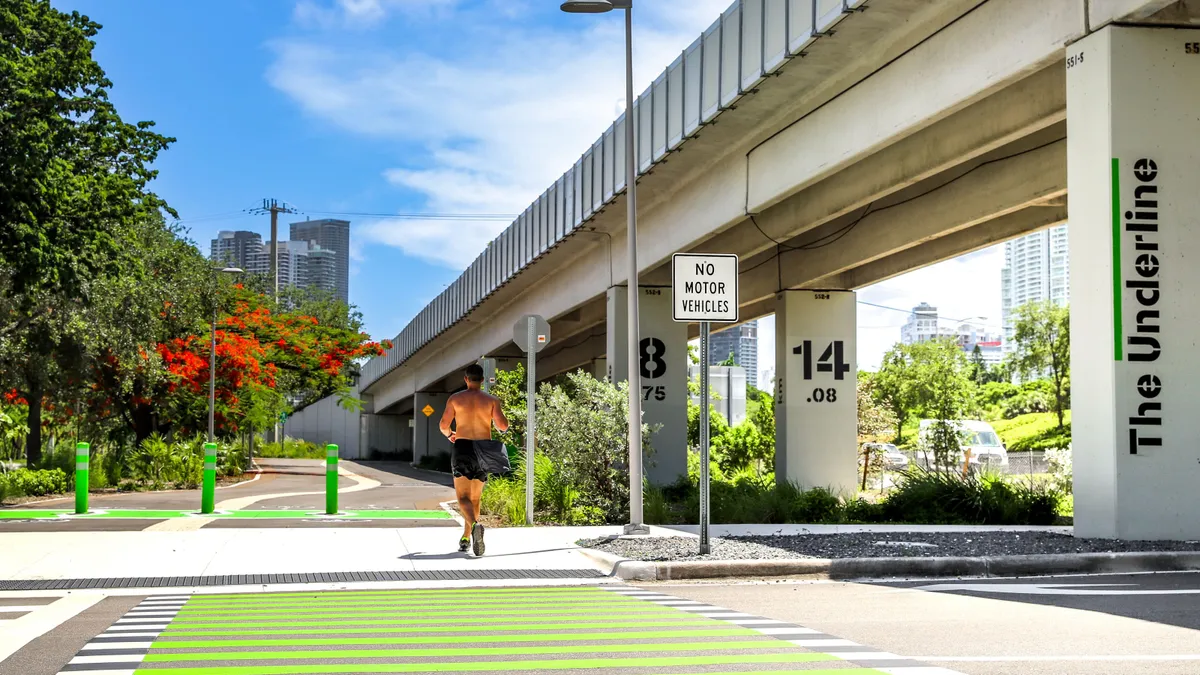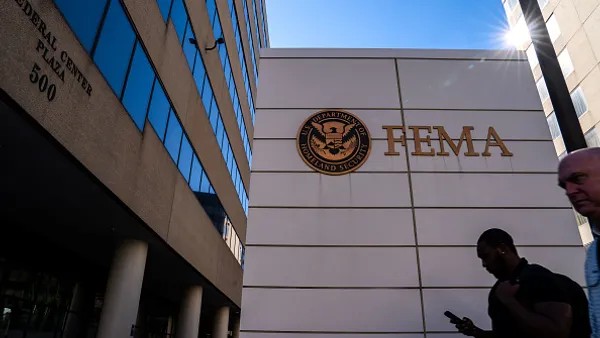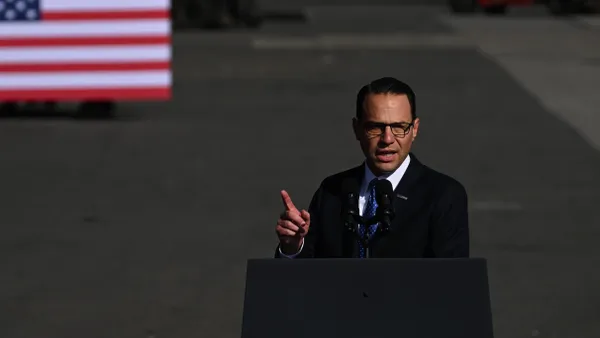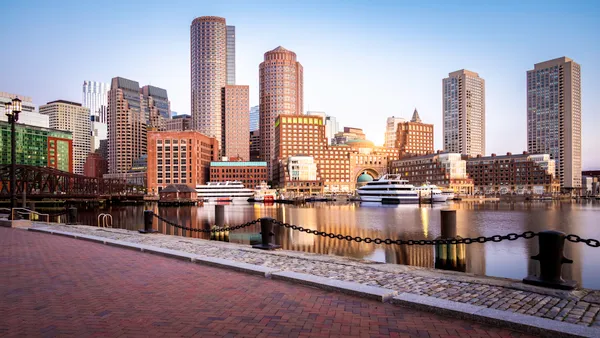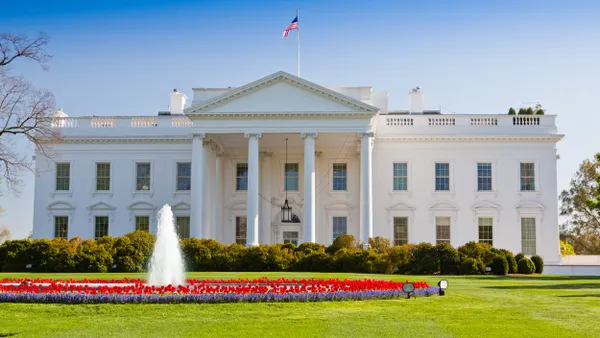UPDATED, Jan. 5, 2021: The WRI Ross Center for Sustainable Cities recently announced five finalists for the 2020-2021 Prize for Cities competition, selected from a pool of more than 260 applications from around the world. The finalists are as follows:
- DistritoTec (Monterrey, Mexico)
- Kibera Public Space Project (Nairobi, Kenya)
- Sustainable Food Production for a Resilient Rosario (Rosario, Argentina)
- Ultra Low Emission Zone (London, UK)
- Women's Action Towards Climate Resilience for the Urban Poor (Ahmedabad, India)
The projects projects will now be evaluated by an "independent jury of urban thinkers" to determine the winner of the $250,000 grand prize. Each runner-up project will receive $25,000. The winning project is expected to be announced in April.
Dive Brief:
- The World Resources Institute's (WRI) Ross Center for Sustainable Cities launched on Monday its second "Prize for Cities" competition, which will award organizations and individuals with funding for projects that tackle climate change and urban inequality.
- Teams from public, private and nonprofit sectors around the world are encouraged to submit applications on the theme of "Inclusive Cities for a Changing Climate" to showcase projects that "apply big ideas to critical urban problems" and "have ripple effects on institutions, the wider city and other cities," said Anne Maassen, global lead for the Prize for Cities program.
- Applicants should apply by May 7. An independent jury will select and announce winners by April 2021. One winner will receive $250,000, and four runners-up will receive $25,000.
Dive Insight:
The Prize for Cities team was strategic in its selection of theme, as city-level climate challenges often offer a lens into broader equality issues. The International Union for Conservation of Nature (ICUN) and United Nations Educational Scientific and Cultural Organization (UNESCO) have each shared research on the ways gender inequality can disproportionately exacerbate the effects of climate change on women, and Stanford University recently studied how global warming has played a role in increasing economic inequality.
The Ross Center has also illustrated, by opening up the Prize for Cities competition to virtually anyone in the world, that these challenges do not recognize borders. While some regions and populations will experience more intense effects of climate change than others, they are felt on a global scale, which indicates the importance of a global competition.
Ani Dasgupta, global director of WRI Ross Center for Sustainable Cities, said in a statement that efforts to mitigate climate and inequality together are possible, but it's crucial to "learn faster from successes and scale them."
The Ross Center's Prize for Cities is among dozens of competitions directed at local-level governments to uncover and scale projects that make cities more livable and resilient. Just today, the Real Play Coalition launched a playful cities challenge to encourage citywide "play initiatives" in design and planning, while Leading Cities last week launched its AcceliGOV initiative to give global cities the chance to win a pre-paid pilot of cybersecurity solutions.
In the inaugural Prize for Cities competition, which sought more broad applications of projects driving urban transformation, SARSAI took home the $250,000 prize for its approach to creating safe school commutes for children in African cities. That competition drew in nearly 200 applications.







